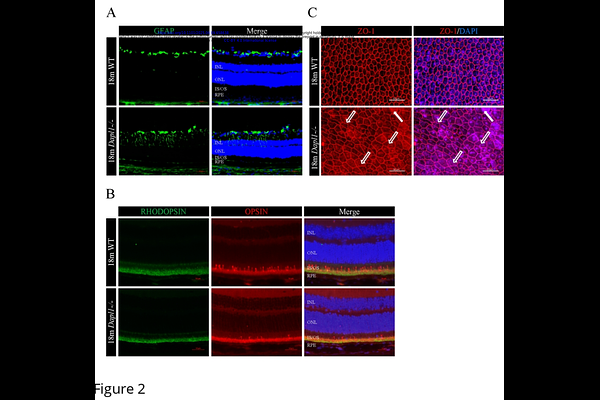DAPL1 deficiency impairs autophagy in retinal pigment epithelium to drive age-dependent retinal pathologies

DAPL1 deficiency impairs autophagy in retinal pigment epithelium to drive age-dependent retinal pathologies
Chen, H.; Tan, Q.; Hu, Y.; Liu, L.; Liang, X.; Hou, L.
AbstractAge-related retinopathy, primarily comprising age-related macular degeneration (AMD), is a major cause of irreversible blindness in the elderly population worldwide. Although its precise mechanisms remain incompletely understood, autophagy deficiency in retinal pigment epithelium (RPE) cells has been associated with AMD in patients; however, the regulatory pathways involved are not fully elucidated. In this study, we report that deficiency in the Dapl1 gene inhibits RPE cell autophagy and leads to age-dependent retinal pathologies in mice. Specifically, 18-month-old Dapl1-/- mice manifest age-related retinal dysfunction and structural abnormities, including increased retinal stress, photoreceptor/RPE cell damage, lipid aggregates and microglial activation. Furthermore, we demonstrate that autophagy is impaired in the RPE cells of Dapl1-/- mice, while overexpression of DAPL1 in RPE cells enhances autophagy activity. Mechanistically, we elucidate that DAPL1 suppresses the expression of E2F1 and c-MYC, which consequently downregulates mTOR and upregulates ATG16 and Beclin1 expression via DAPK1 in RPE cells, thereby promoting autophagy. Taken together, our findings demonstrate that DAPL1 acts as a novel regulator of autophagy in RPE cells, and its deficiency increases susceptibility to age-dependent retinal pathologies in mice.